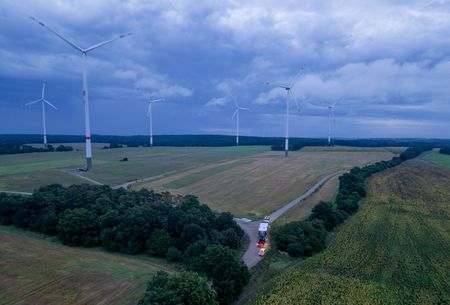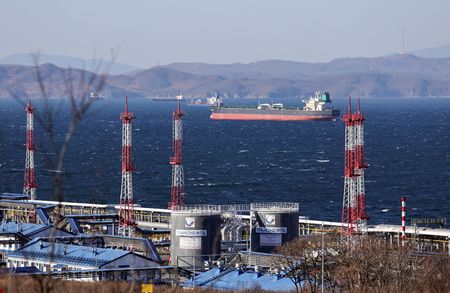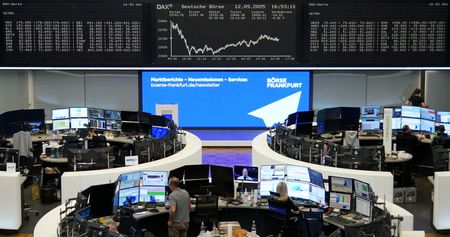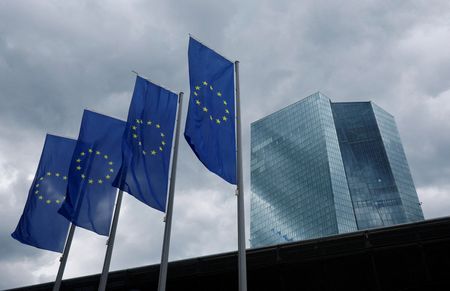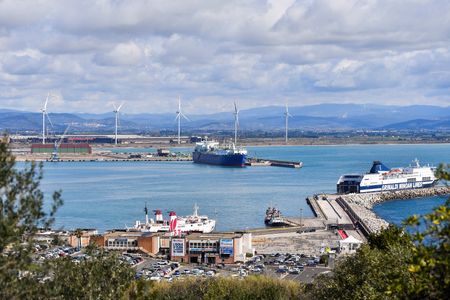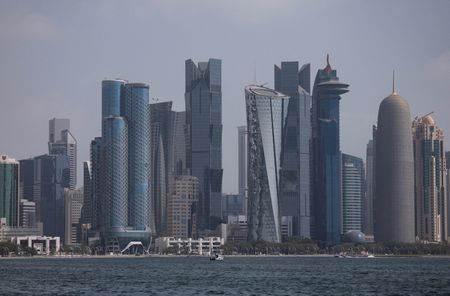BERLIN (Reuters) – Wind farms off the northern German coast have been asked to install radar facilities in an attempt to boost surveillance of ships and drones, the federal maritime authority said on Wednesday.
Russia’s invasion of Ukraine has heightened security concerns in European waters, with attacks on infrastructure and the discovery of ageing oil tankers.
German authorities recently initiated customs proceedings after towing the Eventin vessel, which was spotted adrift in German waters. The European Union believes the tanker to be part of a “shadow fleet” Russia employs to circumvent oil sanctions.
Some vessels may have navigation systems switched off, authorities have reported, and Finland’s Coast Guard last year reported disturbances to satellite navigation signals in the Baltic Sea and some tankers spoofing their location data.
A spokesperson for Germany’s federal maritime agency, the BSH, confirmed a Bild newspaper report that offshore wind farms had been asked to install radar.
The 2025 standards, published by the BSH in late January, call for wind farm operators to install state-of-the-art radar systems at suitable structures and deliver the collected data to authorities.
“The data is primarily used to secure transport routes,” BSH official Nico Nolte told Bild, adding it is also delivered to the federal maritime security centre in the port of Cuxhaven. The authority is responsible for the safety and security of the German coast.
Companies operating wind parks in the North and Baltic Sea include utilities EnBW and RWE.
Germany is preparing for major investment in security and defence, following a constitutional reform pushed through by parties seeking to form the next government. The reform allows for practically unlimited spending in those areas.
(Reporting by Rachel More, editing by Kirsti Knolle and Ros Russell)

